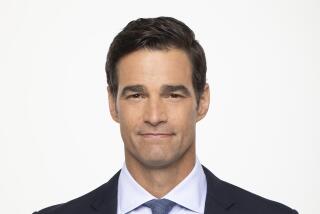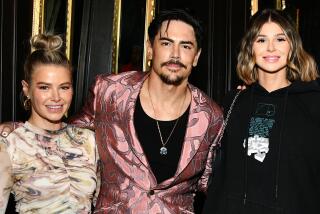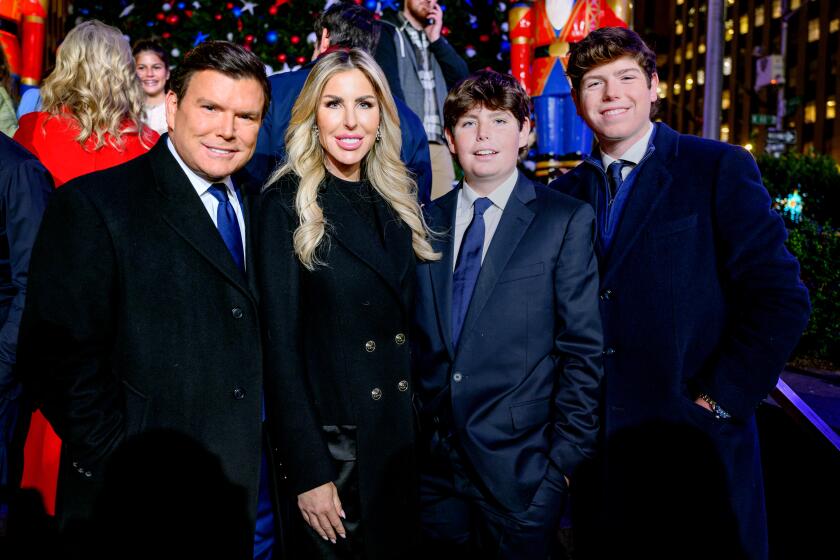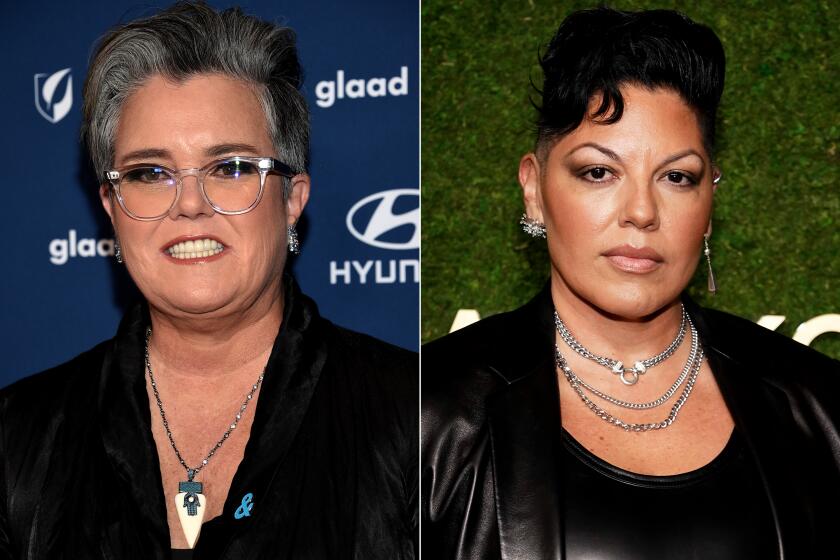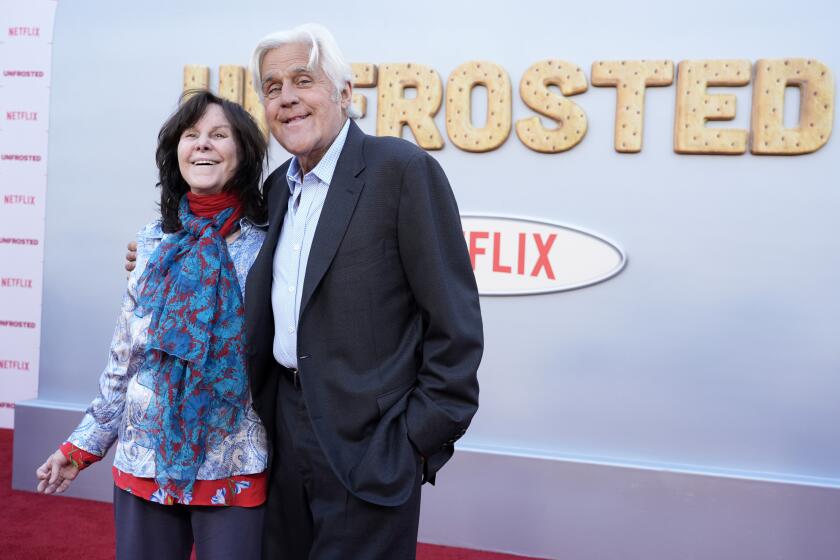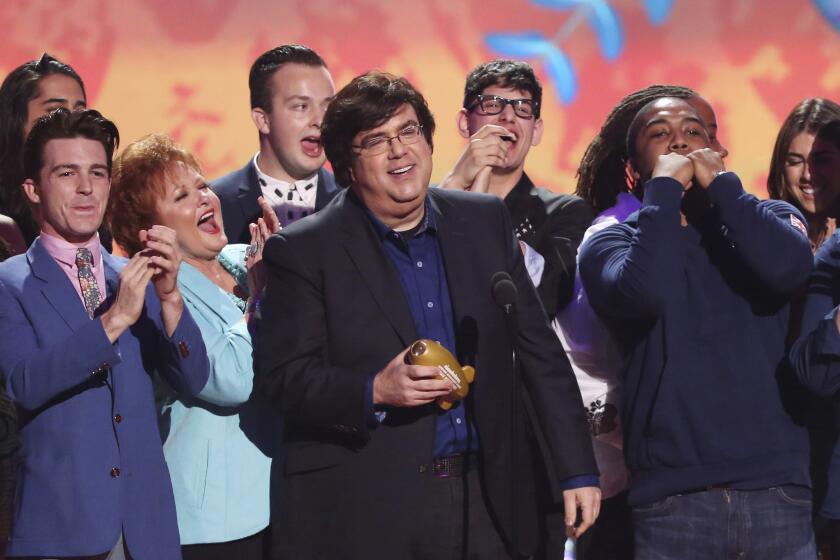Discussion aired in L.A.’s public square
When the L.A.-based lecture series Zócalo Public Square held its annual fundraiser four weeks ago at Union Station, the scene evoked a trendy nightclub opening more than a gathering of bookish cultural mavens and public policy wonks.
The 400 guests, ethnically mixed and many younger than 40, were snappily turned out in Jazz Age attire. Nattering and flirting, they knocked back Manhattans and gin sours and feasted on duck rillettes and “post-Columbian gazpacho” curated by food critic Jonathan Gold of the LA Weekly. At the edge of the small dance floor, KCRW music host Garth Trinidad served up chill platters of classic soul and funk.
Dashing among the partiers, Gregory Rodriguez, 44, Zócalo’s effusive founder-executive director, was brimming with plans for broadening Zócalo’s partnership network and making its brand of hip-but-serious, civic-minded intellectualism stand out from similar programs on both coasts. Talk series like his, Rodriguez asserts, are filling a niche left by the shriveling of newspaper op-ed pages, and represent a democratic (small “d”) challenge to the corporate-membership men’s-club forums of old that served the wealthy and well connected.
“We’ve benefited from the old models crumbling,” says Rodriguez, a Los Angeles Times op-ed columnist; senior fellow with the New America Foundation, a nonpartisan public policy institute headquartered in Washington, D.C.; and author of “Mongrels, Bastards, Orphans and Vagabonds: Mexican Immigration and the Future of Race in America.” “It’s about tenor and tone. Our advantage is that we’re on the ground.”
Some cultural institutions are Olympian marble monuments, bestowing trickle-down enlightenment on the masses below. Others are storefront operations, quietly serving deeply rooted communities on bare-bones budgets. Zócalo, founded in 2003, could be compared to one of those gourmet Korean taco trucks restlessly cruising the L.A. streets, keeping its overhead costs low and catering to a clientele with cerebrally demanding, culturally mashed-up tastes. Highly mobile and virally networked, it mainly relies on word of mouth and Twitter feeds to publicize its product, which is just as well because it has no marketing budget.
In seven years it has hosted more than 500 speakers at 235 events with push-button titles (“The Curse of Oil,” “Is Feminism Transforming the Middle East?”), the majority at roughly two dozen L.A. venues including the Hammer, the Skirball, the Getty Center, the Museum of Contemporary Art, the Petersen Automotive Museum on Wilshire Boulevard’s Miracle Mile (the topic: “How Does Better Design Make for Better Health?”) and Tim Robbins’ Actors’ Gang theater in Culver City. Coming up this month: “Can the Internet Stay Free?” with Columbia University law professor Tim Wu.
While screaming matches dominate talk radio and cable TV, Zócalo shuns intellectual bomb-throwing. It recruits speakers across the political spectrum, from the conservative Michael Gerson, former President George W. Bush’s chief speechwriter, to the liberal economist Paul Krugman.
Prizing civil exchanges and snark-free commentary, Zócalo sees its mission as “humanizing and broadening” tough subjects “rather than having people take sides,” Rodriguez says. Councilman Eric Garcetti calls Zócalo “L.A.’s town hall.” Robert Putnam, the Harvard University scholar and author of “Bowling Alone” and “American Grace” who spoke at Zócalo last month, has said that he hopes its model will be emulated nationwide.
While Zócalo trumpets those endorsements, Rodriguez concedes that his organization wrestles with some of the same challenges facing every cultural entity in attention-challenged, financially stressed-out times. “We’re trying to figure out what everyone’s trying to figure out,” he says. “How do you get young people, how do you get nonwhite people?”
One way is to have a staff that resembles contemporary L.A. Zócalo is run by a three-woman administrative team: program director Dulce Vasquez, 24; media and field producer Laura Villalpando, 26; and Swati Pandey, 28, who spearheads Zócalo’s website magazine, which includes book reviews, opinion pieces, podcasts, video interviews and poetry.
Steve Coll, president of the New America Foundation, which has produced events with the L.A. organization, says it’s “thrilling to see” the youthful, diverse crowds that turn out for Zócalo events. “The irony in Washington and I’m sure lots of capital cities is that the real politics and the real policy is made by staffers in their 20s and 30s, and all the institutions are made for people in their 60s,” Coll says.
Rodriguez and his colleagues are well aware that their profile gives them an advantage in tapping into a certain audience segment, “knowing that we’re the faces, we’re the people who take you to your seat,” says Vasquez, a native of Tamaulipas, Mexico, who studied political science and philosophy at Northwestern University.
“They are sort of the open and welcoming face of L.A. public intellectual life, at least our version of it,” Rodriguez says of his female colleagues. “There are no stuffy guys in blazers, like me.”
Rodriguez’s politics are tougher to classify than his wardrobe. Writing frequently about race relations, immigration and national identity, he favors a pragmatic rather than dogmatic perspective that lists toward center-left. Besides The Times he has written for the Wall Street Journal and the Economist, among other publications, often holding up California as America’s test tube. “He’s very much sort of California Man,” Coll says. “He represents a rising sensibility, not just a rising demography. He’s very much open to new entrances, new ideas.”
Years before Zócalo came along, L.A. intellectual life already was well served by a plethora of lecture programs and chat series. That robust scene includes the 17-year-old, author-oriented ALOUD at Central Library and Writers Bloc, as well as salon-style exchanges at the Skirball Cultural Center and the Hammer Museum.
But the home-grown, nonprofit Zócalo, which operates on a $500,000 annual budget, 80% of it supplied by foundations, stands apart in some respects. Unlike many peers, it isn’t a bricks-and-mortar organization, even though its name means public square in Spanish and its logo depicts a large Mexican-style central piazza. Rather, it’s an itinerant outfit, operating out of a cramped Wilshire Boulevard midrise office suite. Zócalo is free to work with any group, Villalpando says, that helps “to uphold our mission to serve those who aren’t being served by larger institutions.”
Zócalo has hosted out-of-town events in Chicago, San Francisco, Guadalajara, Berlin, Shanghai and New Orleans, where a panel chat on the Latino-ization of the Crescent City mulled the question, “Is Black-Brown the New Black-White?” Audiences in some other cities have asked Zócalo to set up satellites. “Every major metropolitan area is starving for a place to meet, gather and share intellectual life,” Vasquez says.
Michael Crow, president of Arizona State University, says that Zócalo’s broad-minded approach to informing audiences and helping to shape public policy was a major reason why ASU is partnering with it to open a new think tank, the Center for Social Cohesion, with offices in Phoenix and in Los Angeles. The center, scheduled to debut next year, will work with Zócalo to generate policy solutions to complex issues such as immigration reform, air them out in various forums, and then try to place them on lawmakers’ agendas.
Crow says the “post-partisan” nature of groups like Zócalo could help counteract America’s “intellectual gridlock” and encourage young people to engage more deeply and regularly in civic life. “The younger folks that are just coming up, they seem to be less interested in academic formality,” Crow says. “Zócalo provides that higher-speed connectivity to millennials.”
Once in a while, Zócalo’s ambitious reach exceeds its grasp. Two years ago it had to turn away 300 people who showed up at the 240-seat auditorium of the Rand Corporation in Santa Monica for a talk by Krugman — at the time, his first major public address since winning the Nobel Prize for economics.
The seat-deprived were not amused. “That was one of our disasters,” Rodriguez groans. Since then, Zócalo’s staff has gotten better at forecasting audience sizes.
Food critic Gold says that Zócalo speaks not only to younger audiences but to midlifers yearning for the mental stimulation of earlier days. “People our age, most of us spent our 20s propping up the bar in [crummy] clubs, going to hear bands,” Gold says. Zócalo offers “sort of a way to keep that perspective going, but you’re not going to kvetch about how loud it is.”
His comparison resonates in a culture where pundits like Glenn Beck and provocateurs like Jon Stewart command the following of pro jocks and pop stars.
Zócalo isn’t trying to be a mass rally on the D.C. Mall, let alone a Lady Gaga warm-up act. For the immediate future, Rodriguez says, he simply wants it to become “a permanent institution in Los Angeles,” albeit one with no fixed locale and a roaming imagination.
“We’re still trying to become that public square.”
More to Read
The biggest entertainment stories
Get our big stories about Hollywood, film, television, music, arts, culture and more right in your inbox as soon as they publish.
You may occasionally receive promotional content from the Los Angeles Times.
